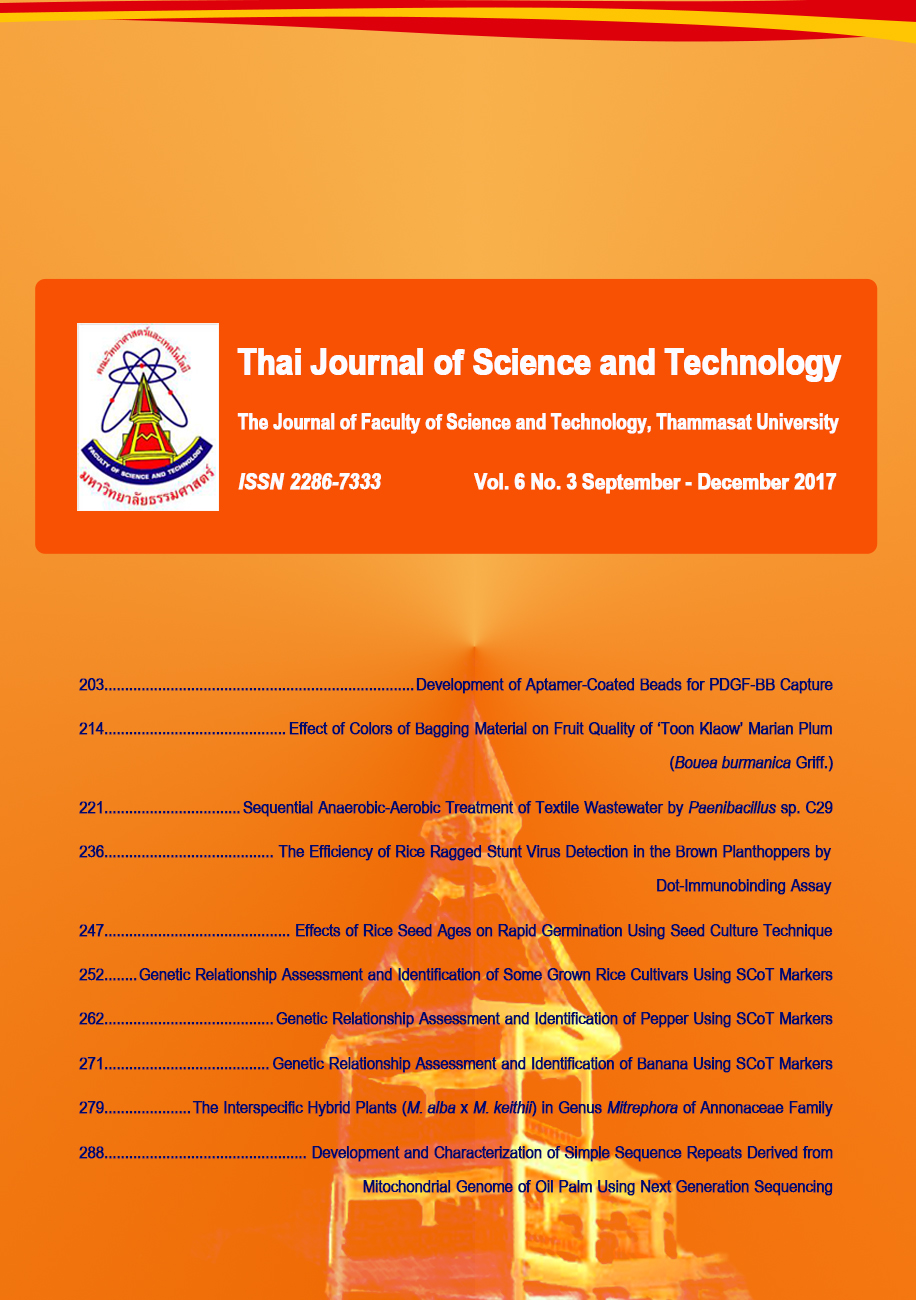Development and Characterization of Simple Sequence Repeats Derived from Mitochondrial Genome of Oil Palm Using Next Generation Sequencing
Main Article Content
Abstract
Abstract
The advancement of the high throughput sequencing and computational technologies allow us to perform genome sequencing and analyzing the genome sequence. In this study, the oil palm mitochondrial (mt) sequences (258 contigs) were assembled from reads that aligned to the homologous regions of date palm mt genome (covered ~57 %). The 51 from 258 oil palm mt contigs contained 78 SSRs with a variety of repeat motifs. Mononucleotide repeats were the largest group (80.7 %) consisting of A/T (98.4 %) and G/C (1.6 %) motifs. Trinucleotide repeats formed the second most repeats (8.9 %) consisting of TTA/TAA (33.2 %), TTC/GAA (16.7 %), TAG/CTA (16.7 %), TAT/ATA (16.7 %) and CTA/TAG (16.7 %). This was followed by the dinucleotide repeats (7.7 %) consisting of AT/TA (100 %) and tetranucleotide repeats (2.7 %), which consist of TATT/AATA (50 %) and ATTT/AAAT (50 %). Ten mt simple sequence repeat (mtSSR) markers were developed from the candidate mt sequences of E. guineensis to study the genetic diversity among fifteen plant species distributed in different subfamilies in Arecaceae. Nine of ten markers, developed from oil palm mt genome sequence, were transferable and polymorphic in 15 Arecaceae species. The average number of alleles detected by these ten mtSSR markers was 7 ranged from 4 to 14. The average polymorphic information content (PIC) score for the mtSSRs was 0.766. This is the first report revealing the use of mtSSR, developed from oil palm mt sequences, as a resource for the genetic diversity study in Arecaceae species.
Keywords: oil palm; mitochondria; high throughput sequencing; simple sequence repeat
Article Details
บทความที่ได้รับการตีพิมพ์เป็นลิขสิทธิ์ของคณะวิทยาศาสตร์และเทคโนโลยี มหาวิทยาลัยธรรมศาสตร์ ข้อความที่ปรากฏในแต่ละเรื่องของวารสารเล่มนี้เป็นเพียงความเห็นส่วนตัวของผู้เขียน ไม่มีความเกี่ยวข้องกับคณะวิทยาศาสตร์และเทคโนโลยี หรือคณาจารย์ท่านอื่นในมหาวิทยาลัยธรรมศาสตร์ ผู้เขียนต้องยืนยันว่าความรับผิดชอบต่อทุกข้อความที่นำเสนอไว้ในบทความของตน หากมีข้อผิดพลาดหรือความไม่ถูกต้องใด ๆ


